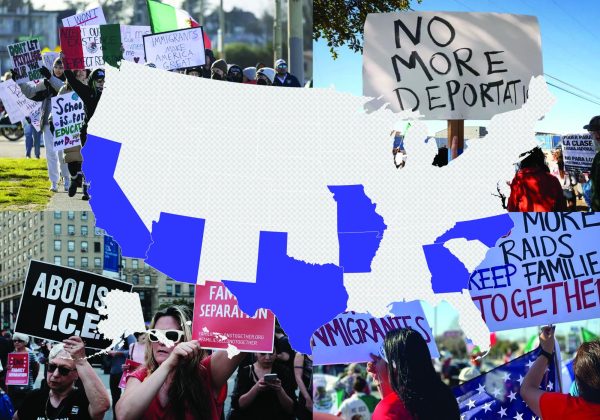“White Fragility” is a must-read before you can be “Anti-racist”
It is a rare occurrence that one finds a book where every line is quotable and every chapter makes you reflect; however, sociologist Robin DiAngelo’s “White Fragility: Why it’s so hard for white people to talk about racism” achieves both. Answering the question of why it’s so hard for white people to talk about racism, sociologist DiAngelo masterfully addresses the reader–who is presumed to be white as connoted by her use of the words “us” and “we”– and challenges a variety of their beliefs, both conscious and unconscious.
While Ibram Kendi’s book teaches the reader “How to be Anti-Racist,” DiAngelo’s is a first-step, how-to guide in recognizing your place in a racist society as inherently racist. While I had heard of her book before, I had been dragging my feet when considering reading it, thinking that I was already conscious of my place–a very “this doesn’t apply to me” mentality.
DiAngelo is quick to debunk this way of thinking in the first chapters of her book. She writes, “white progressives cause the most daily damage to people of color” as she calls upon those claiming not to be racist to reframe their understanding of racism; to think of it not as a character trait but as a foundation that our entire society is built upon. It is inescapable to operate within it, making you inherently racist.
By first restructuring your way of thinking, then taking you through U.S. history as it pertains to racism (which is its entire history), and finally diving head first into the topic of white fragility, DiAngelo artfully strips bare your preconceived notions and builds back up a foundation of understanding.
She achieves this through carefully crafted metaphors that make the ideas she presents accessible and simple, by deliberately selecting outside sources and, perhaps my favorite of her tactics, a cleverly selected diction.
The book is meant to make the reader sit and learn to be comfortable with discomfort as they deconstruct internalized biases and preconceptions. As a method of doing this, in conjunction with a clever selection of diction, DiAngelo flips the script when she juxtaposes the term “whites” with “Black people” and “people of color.” This emphasizes the illusion that white people exist as a monolithic identity all while people of color are denoted the proper respect in the terminology she uses. This is an inversion of the diction used in society today. While DiAngelo’s end goal is to understand all people to be deserving of respect, her word choice subtly provides the reader with only a fraction of the discomfort people of color experience existing within a racist society.
DiAngelo’s book and perspective has gained criticism for the homogenization of white people she employs; A U.S. centered perspective and perceived “infantilization” of people of color, among other critiques. These critiques demonstrate how complex the topic is and highlight that no one book is going to be a one stop education, this one included.
This book is a must-read regardless of where you think your level of racial justice literacy lies. Gone are the days of just saying “I’m not racist” and stopping there; it’s time to self-reflect and self-educate. I suggest your journey starts with Diangelo’s “White Fragility” and expands from there with pieces like “How to be Anti-Racist,” “The New Jim Crow” and “Locking up Our Own.”

Isabelle Hajek is a senior at the University of New Haven majoring in psychology with a concentration in forensics and a double minor in criminal justice...




